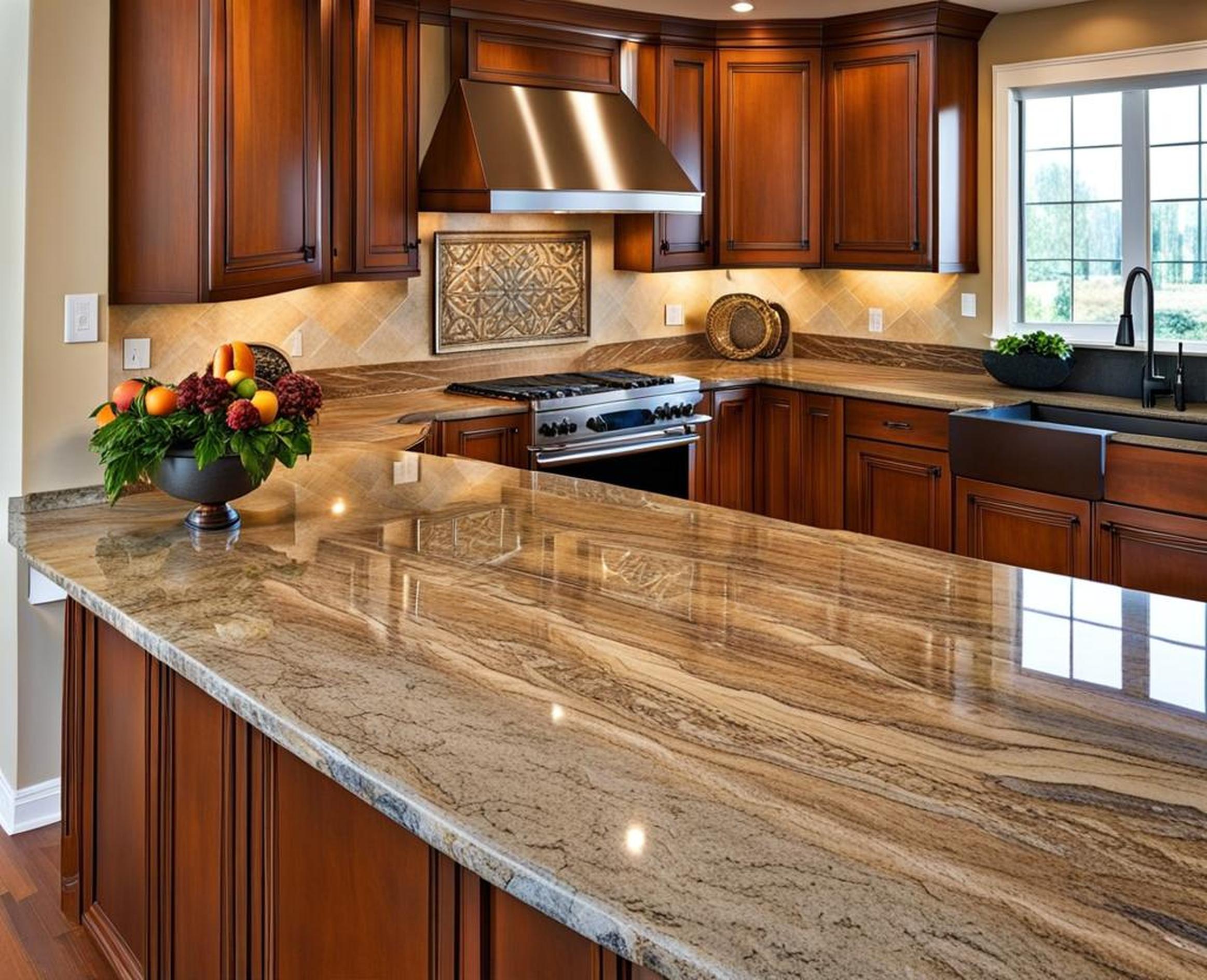Granite and quartzite are the most popular natural stone countertops. Both offer unique visual appeal and rock-solid durability. However, there are some key differences to understand before deciding which stone reigns supreme for your kitchen.
By comparing durability, maintenance needs, cost considerations, aesthetics, and more, you’ll have the knowledge to select the right countertop for your needs.
Durability: Hardness and Toughness Ratings
When evaluating countertop materials, durability is often the first consideration. Natural stones like granite and quartzite score highly here, but quartzite does edge out granite in some regards.
On the Mohs hardness scale, quartzite rates around a 7, while granite rates from 6 to 7. This means quartzite withstands scratches better. Both materials stand up excellently to impacts and the wear-and-tear of a busy kitchen thanks to their dense composition.
Strength Against Cracks and Chips
Quartzite’s high density gives it increased structural integrity to resist chips and cracks compared to granite. However, some granite types, like Absolute Black, also demonstrate excellent resilience.

| Material | Durability Rating |
| Quartzite | Extremely high |
| Granite | High |
Maintenance Needs: Sealing and Cleaning
Both quartzite and granite require sealing to prevent staining, moisture damage, and bacterial growth. Sealing fills microscopic pores that could otherwise allow penetration.
More Frequent Sealing for Quartzite
Due to its higher porosity, quartzite generally calls for more frequent sealing than granite. Every 6-12 months is advisable for heavy use quartzite countertops. Granite may only need sealing every 1-2 years.
Basic soap-and-water cleaning is effective for both materials. Using pH-neutral stone cleaners minimizes etching or dulling over time as well.
Granite More Prone to Staining
When properly sealed, quartzite generally resists staining better than granite due to its tighter pores. However, both stones can develop stains if left unsealed and exposed to spills.
Cost Considerations
Quartzite countertops are typically more expensive than granite. There are a few reasons for this:
- Quartzite’s rarity makes it costlier to source and produce into slabs
- The intricate artistry and labor needed to cut quartzite increases fabrication costs
- Popular varieties and rare color patterns demand a premium price
However, unique high-end granite can reach luxury price points as well. Overall, expect to invest 15-30% more for quartzite over granite on average.
Aesthetic Qualities and Color Range
When it comes to variety of colors and patterns, granite has quartzite beat. Granite occurs in stunning arrays from solid black to vibrant blue-green with flowing marbling.
Quartzite typically appears in more subtle white, gray, and neutral hues. Yet it undeniably provides a sense of movement with distinctive veining traces throughout.
Both stones deliver one-of-a-kind looks unmatched by artificial materials. Choosing comes down to aesthetic taste and the overall design vision for your kitchen.
Heat Tolerance
You can place hot pans on either granite or quartzite without immediately damaging them. However, prolonged direct high heat can still cause issues over time.
Using trivets and hot pads is always advised. Comparing heat tolerances, quartzite rates somewhat higher, while sudden temperature changes can contribute to granite cracking.
Additional Factors from Sourcing to Layout
Other considerations that may impact your granite versus quartzite decision include:
- Sourcing and availability
- Ease of installation
- Thickness for durability
- Fit within overall kitchen layout
Consulting with stone supply specialists and designers will help assess these project-specific needs.
In the battle between granite versus quartzite, both offer tempting advantages. Quartzite’s extreme toughness and undeniable visual flair goes toe-to-toe with granite’s wider color range and slightly more affordable costs.
Considering your priorities for durability, maintenance, and style will dictate the right stone to create your dream kitchen. With this detailed comparison, you now have the key facts to decide whether rugged quartzite or classic granite makes the best countertop investment.
